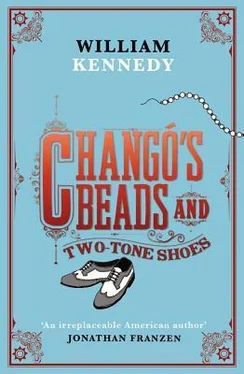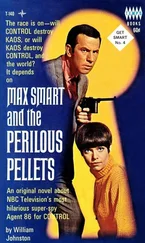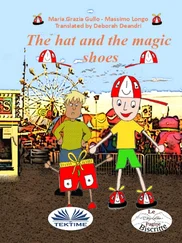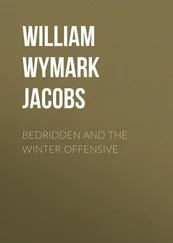Quinn interviewed Roy as he picketed and when the Times Union story came out the next day four black men joined Roy’s picket line and Tremont was the first of the four. Twenty more joined the day after that, including Baron Roland, who taught the history course Roy was taking at Albany City College. The unofficial title of Roland’s course was “Social Justice, an Oxymoron.” Roy and his fellow picketers were all so full of fire and grievance that Roland suggested they organize to face down racism. The strength to do this, he assured them, would grow out of their collective anger, and more would join them, for black power was in the air. Within two months the Brothers existed three-dozen strong, picketing unions and city hall, speaking at churches, joining peace marches, giving slum tours to the press and the clergy, and, in the spirit of Claudia Johnson, dumping cockroaches on the desks of slumlords.
The Brothers took on the aura of the Black Panthers, America’s badass militants. They disavowed Panther talk of killing white cops, but they loved Malcolm more than Martin, and when Malcolm came to town they sat with him in the gallery of the Senate chamber. When Stokely came he visited the Brothers’ storefront and said riots in Newark and Detroit were an unavoidable movement toward urban guerrilla war. Roy Mason, who spoke cogently and without rant as coordinator of the Brothers, clarified the group’s position. “No, we’re not Stokely, and we don’t advocate violence. But we don’t advocate nonviolence either.”
Tremont spent less time with the Brothers and more time going with his wife to meetings of Better Streets. As Election Day 1967 approached, the Brothers accumulated enough signatures to put one of their own, Ben Jones, on the Liberal Party ticket for alderman of the Third Ward. They announced plans to picket polling places to urge blacks not to sell their vote. Roy tried to register as a poll watcher in the Third Ward but it had already been assigned to Tremont Van Ort of Better Streets. “I’ll help him out,” said Roy.
Roy was alone on the corner of Westerlo and Green streets at 5:45 on the clear, twenty-four-degree morning of Election Day when Quinn and Matt Daugherty arrived in Quinn’s car. Cardboard signs with POLLING PLACEhad been nailed to telephone poles on the block, and one was pasted onto the window of Tony Romildo’s storefront clubroom, where old-timers who couldn’t speak English gathered to drink coffee and grappa. Store lights were on and men were moving a table. One man saw the group outside and came out. He was a white-haired pudge with a facial flush and razor nicks.
“You people here to vote?”
“We’re waiting for a friend,” Matt said.
“Tremont Van Ort,” Roy said. “He’s your poll watcher today.”
“You’re all waiting for a poll watcher?”
“I’m from the Times Union ,” Quinn said. “I’m doing an all-day story on the election.”
“We don’t need any poll watchers. What are you gonna watch, people pullin’ the lever?”
“That’s it,” Roy said. “See it’s done the way it’s supposed to be.”
Another man came to the door.
“They’re poll watchers,” the first said.
“Listen,” said the second, “I’m a Republican and I been livin’ in this ward forty years and I never saw anything down here that wasn’t legit.”
“I run this district,” the first said. “Anything funny I’d hear of it. Nothing at all. Nothing.”
“Then it’ll probably be a nice, quiet day,” Roy said.
“Here comes Tremont,” Matt said.
The two politicians watched Tremont approach with his game-legged strut. Gloria was with him, carrying two paper bags, and Tremont wore the new white shirt and blue tie Claudia bought for his big day at the polls.
“You’re the poll watcher?” the first man asked Tremont.
“Yes, sir,” Tremont said.
“Go home. There’s nothing to watch.”
“I got credentials to give to the man in charge.”
“That’s me,” the man said. “Fred Malloy, president of this ward.”
“Can we go inside?” Gloria asked. She pulled open the clubroom door and set the bags on an empty table. Quinn followed and asked her, “Aren’t you supposed to be in school?”
“School? You think I’d miss this for school? Show him your credentials, Tremont.” Tremont handed his accreditation to Malloy and Gloria said, “Here’s his list of duties from the attorney general. Check that the voting machine counter is set at zero, check the voting machine curtains. There’s more.” She offered the paper to Malloy, who didn’t take it.
“Curtains?” he said. “Whataya don’t like the color?”
“Make sure they’re not transparent, and that they close properly,” Gloria said. “And the counter.”
“You wanna see the counter, see it,” he said, gesturing to the machine.
Tremont closed and opened the curtains, then looked at the voting levers with the candidates’ names and parties. “I don’t see no zero,” he said.
“In the back,” Malloy said.
Tremont went to the back of the machine. “I still don’t see it.”
Malloy opened the counter’s cover. “Zeros. See that? All zeros.”
“Zeros,” Tremont said.
Gloria passed out coffee and donuts.
“Whata we got here, a coffee klatch?” Malloy asked.
“This isn’t done,” the Republican said.
Malloy handed the credentials back to Tremont. “You can stay,” he said, “but that don’t mean the rest of you. You’re lookin’ for somebody gonna pay five dollars a vote, is that what you wanna see? I been here all my life and never saw any of that stuff.”
“Anybody gonna do that,” the Republican said, “common sense they’d have done it last week.”
“Nobody said anything about any five-dollar vote,” Matt said.
For the first time Malloy saw Matt’s collar.
“You’re a priest?”
“A Franciscan, at Siena College. Matthew Daugherty, OFM.”
“What’s the Catholic Church doing in politics?”
“Hey, Pope Paul went to the U.N.”
“For peace,” Malloy said.
“And justice,” said Matt.
“You oughta be ashamed chasin’ politics, a priest.”
“God made us all sinners, and he included politicians,” Matt said.
“Shame.”
“I ain’t ashamed,” Tremont said. “It’s all legal. We got our rights to be here. You seen those papers.”
“Coffee klatchers outside,” Malloy said. “This guy wants to stay the chair’s right there. The rest of you get lost.” He motioned to the Republican and together they moved the metal fence behind which voters would line up to vote. The move pushed Tremont’s chair into a corner, as far from the registration desk as it was possible to be.
“I also got credentials,” Roy said.
“Is that so?” Malloy said. “What’re they doin’, passin’ ’em out with bubble gum?”
Roy offered his AG papers to Malloy who glanced at them but didn’t touch them. “One at a time is how it goes,” Malloy said.
“I’ll wait outside,” said Roy. “If Tremont has to leave I’m here.”
“You people got a regular army. Big stuff. But you ain’t gonna find squat. This is all on the up and up.”
The front door opened and a man walked in waving two letter-sized pages. “I got the dead list,” he said to Malloy.
Malloy snatched the pages from him and pushed him back out the door. “You fucking moron,” he said in a failed whisper. He turned to the others, holding the door open. “Everybody out.”
Tremont’s cheering section moved out onto the sidewalk into the frigid morning. Tremont sat in the corner with his coffee and donut and at 6:03 two voters came in and voted. They looked legal to Tremont.
Читать дальше












